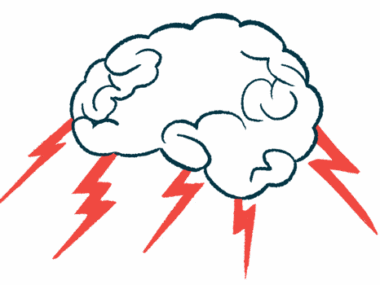NK cell therapy cleared for Phase 2 trial in moderate Alzheimer’s
SNK01 is being developed by NKGen Biotech
Written by |

Note: This story was updated June 21, 2024, to correct that SNK01 was given approval by NKGen Biotech’s Safety Review Committee.
SNK01, a natural killer (NK) cell therapy being developed by NKGen Biotech, has received clearance from its Safety Review Committee to advance into the Phase 2 part of a clinical trial that’s testing the treatment in people with moderate Alzheimer’s disease.
The decision follows the completion of the Phase 1 part of the study (NCT06189963), which showed the treatment was well tolerated and no drug-related side effects were reported in all three patients who received a high dose.
The Phase 2 part will further assess SNK01’s safety and efficacy in about 30 patients randomly assigned to receive it every three weeks, or a placebo, for up to a year. The study is enrolling patients in Glendale, California.
“We are excited to announce another important clinical milestone in our mission to advance SNK01 as the first potential disease-modifying treatment of its kind for patients with more advanced Alzheimer’s disease,” said Paul Y. Song, MD, NKGen’s chairman and CEO, in a company press release.
Jesse Carr, MD, the medical director of Behavioral Research Specialists, who is independently supervising the trial site, said patients given SNK01 are seeing gains.
“We are seeing remarkable preliminary clinical benefit in all patients without treatment-related adverse events, including apparent improvements in cognitive function, increases in daily living activities and overall quality of life.” Carr said.
Cognitive decline as well as other symptoms of Alzheimer’s are caused by toxic proteins beta-amyloid and tau accumulating in the brain, resulting in nerve cell damage, a loss of communication between nerve cells, and cellular death.
What is SNK01?
SNK01 is made from a patient’s own NK cells, a type of immune cell that can recognize other cells in distress and help shape an immune response by clearing protein clumps. Collected from blood, the cells are activated and expanded in the lab and then infused back into the patient, where they should increase the immune response against toxic protein clumps. NK cells can be frozen and stored, allowing a single collection to fulfill four to six months of weekly treatments, according to NKGen.
A proof-of-concept Phase 1 ASK-AD trial (NCT04678453) tested the safety of SNK01 given every three weeks at four escalating doses between 1 and 4 billion NK cells in 10 people with Alzheimer’s disease.
The treatment was safe and able to cross the blood-brain barrier, a semipermeable membrane that protects the brain and spinal cord from the outside environment. It also lowered levels of beta-amyloid and tau and reduced inflammation, while improving or stabilizing cognitive function in 90% of the patients.
Based on these data, the U.S. Food and Drug Administration cleared the Phase 1/2 trial, which is testing the safety and efficacy of a higher treatment dose of 6 billion cells. The Phase 2 part will provide more data on SNK01’s potential risks and benefits. Efficacy measures will include changes in cognitive function, using several scales to assess dementia, psychiatric symptoms, activities of daily living, and cognitive tasks.
Secondary measures include changes in beta-amyloid and tau, as well as in markers of neurodegeneration in the blood and cerebrospinal fluid, which bathes the brain and spinal cord.
“We are … very encouraged with the clinical progress we have made to date in moderate Alzheimer’s disease research and look forward to generating additional significant clinical and biomarker data from our randomized placebo-controlled Phase 2 trial,” Song said.
“I am encouraged by the continued promise of … SNK01 NK cell therapy in a difficult to treat disease such as Alzheimer’s,” Carr said. “I look forward to the potential that this novel drug candidate holds as we continue to progress the trial.”






